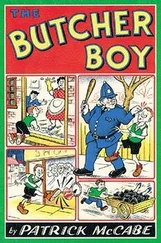It wasn’t until she closed the door to her room that Elizabeth realized she had forgotten to stop at the Bureau to return the Senator’s notebook to the lab. She cradled the telephone in her lap while she rummaged through her purse for Lang’s number. When the telephone rang she felt it and heard it at the same time. Her startled jump knocked the phone to the floor.
“Hello?” she shouted into it.
“Hi, clumsy,” said the voice.
“Hello, Padgett,” she said. “What have you got for me?”
“A sore finger. I’ve been calling all day.”
“I was at the FBI working.”
“You don’t have to tell me. I don’t handle travel expenses. Making any headway?”
“We’ve got a little to go on, but it’s mostly hunches and shaky physical evidence. Enough to keep us busy. Have you got anything new on the Veasy thing?”
“Just what you asked for. The company pension fund has been mishandled, from the look of it.”
“Ah—”
“Just mishandled. Stupidity, not crookedness. They’ve dumped most of it into pie-in-the-sky stuff, hoping for a killing. A lot of it’s gone to the outfit you asked about—Fieldston Growth Enterprises. It looks legitimate, but they’re speculators, pure and simple. Buying up a lot of undeveloped land in resort areas, things like that. Been at it about eight years, picked up a lot of paper profit but not a dime you or the union or the IRS for that matter could put your hands on.”
“Where’s their office?”
“Las Vegas.”
“Why did I ask? Who owns it?”
“Biggest stockholder is Edgar Fieldston himself, at forty-two percent. There’s not much information on him. No arrests, pays his taxes and all that. He’s chairman of the board and draws a salary of seventy-five thousand. Second is the Machinists, who own fifteen percent. The rest are individuals, a couple of banks, all small percentages.”
“Where’d you get all this?”
“It’s all public information—their annual report, ‘FGE for the Future.’ Then I checked with a few people in the SEC and the FTC to corroborate—”
“FGE.”
“Sure. Fieldston Growth Enterprises.”
“Is Brayer nearby? I’ve got to talk to him.”
14
He woke up to his own face; as though it were a separate entity that had moved into the room during the night and now filled a corner like a piece of furniture that would somehow have to be moved aside before anything else could happen. It was dry and angry and hot to the touch. He made his way to the mirror and confronted it.
It wasn’t as bad as it felt, he thought—not infected, anyway. But it was going to take some time and even then it would leave a scar. The bruises and bumps would go away in a couple of weeks, but not the cut. The knee was stiff, but he could feel the blood beginning to course through it and loosen it a little.
He looked at his watch. Eleven o’clock already. He carefully shaved, ran the shower over his wounds, put on clean clothes, and went out into the corridor. It was time to pick up the watchers and get something to eat. They’d probably be waiting near the two most likely exits. He strolled along, testing the knee for hitches, but the elasticity of it seemed to have returned. He crossed the casino and made one circuit of the lobby before he turned to join the line at the ballroom. There middle-aged women in PTA dresses were ranged along a cash register to admit candidates for brunch, which they did with a stony and repellent efficiency, spotting hand signals from the waitresses with the impassive eyes of casino pit bosses.
The watchers weren’t easy to spot this time. He didn’t see any familiar faces, and he didn’t see anyone who made a habit of staring past him into the distance. He had known the old couple would be gone, but it hadn’t occurred to him that they might not be replaced by someone as obvious. He flashed a glance down the line for someone. If the watcher weren’t very good, he would pick that moment to turn away or adjust his glasses or at least touch his face; nobody did.
Inside the ballroom he found a banquet laid for the purpose of proving to the eye that any paroxysm of human greed or voracity could run its course and still be buried in inexhaustible plenty. Pyramids of champagne glasses filled beyond the brim towered over mounds of scrambled eggs and sausages; bleeding slabs of beef were being expertly shaved into pink pages by shining blades. Piles of chicken breasts seemed in danger of spilling over their silver bins to crush the ornately decorated layered pastries. People of all descriptions assaulted the tables in celebration of their acceptance into this place where there could be no such thing as lack or unfulfilled desire.
Mothers piled extra squares of pastry, oozing globs of hollandaise, and slabs of pate on the plates of their children; elderly people balanced second plates on their skinny forearms as they picked their way back to their tables.
They drank and ate and then rushed to the serving trays to accumulate more while their first plates still were heaped with untasted food. All around the ballroom the obsequious starch-coated functionaries circulated like gentle spirits, filling glasses, deftly clearing spilled food and broken crockery from the aisles, and always, unceasingly and untiringly, replenishing the splendor of the serving tables—all of it calculated to foster in each guest the illusion that he had somehow managed to encompass the whole banquet with the amplitude of his desires and to engulf all of it in his insatiability; the pitiful rodent-inroads he had accomplished on the feast were made to stand in his mind for the fulfillment of Gargantuan yearnings in the soul of a restless and heroic being. As it always did, the management had succeeded in concocting a substantial form to stuff into the yawning emptiness of the clients’ dimly perceived insufficiencies.
He had to wait a little longer because he was alone, and the management always balked a bit before devoting a table to one person. But he knew there would be a waitress who remembered that a man alone tips more generously than he does when his wife is watching. It took a few moments before one of them noticed him, cut him out of the gaggle of detainees, and conducted him to her region of the ballroom. It was a tiny table for two along the far wall, where he could survey the entire room without seeming to.
It wasn’t until he saw Orloff that he knew where to look for the watcher. Orloff’s short, corpulent body bobbed up into the line of people waiting for a table, and a man in a light blue cowboy shirt nodded to him and left. It was typical of Orloff, he thought—always in a hurry, always running three minutes late for an appointment somewhere else. He’d waste a face so he didn’t have to stand fidgeting in a line, his pudgy fingers wandering over the immaculate surface of his gray suit coat as though something important were in one of the pockets.
He watched as Orloff’s fat white hands fluttered impatiently at a passing waitress, then pointed at his table next to the wall. The waitress nodded and Orloff waddled rapidly down the aisle toward him. When Orloff reached the table there was a dewy mist of sweat on his face, as though he had just passed through a cloud. He was a little out of breath, but it sounded more like agitation than exertion. He was taking gasps of breath through his thin red lips and blowing them out his nose in nervous little snorts.
He pushed the chair opposite him away from the table with his foot and Orloff settled into it, his elbows already on the table.
“Have you lost your mind?” said Orloff.
“Why, have you found one?” he answered.
“It’s Wednesday, the fifteenth of February,” Orloff hissed, then paused to snort twice for emphasis. “Our agreement was that you would pass through here on Friday the seventeenth in the evening.”
Читать дальше












